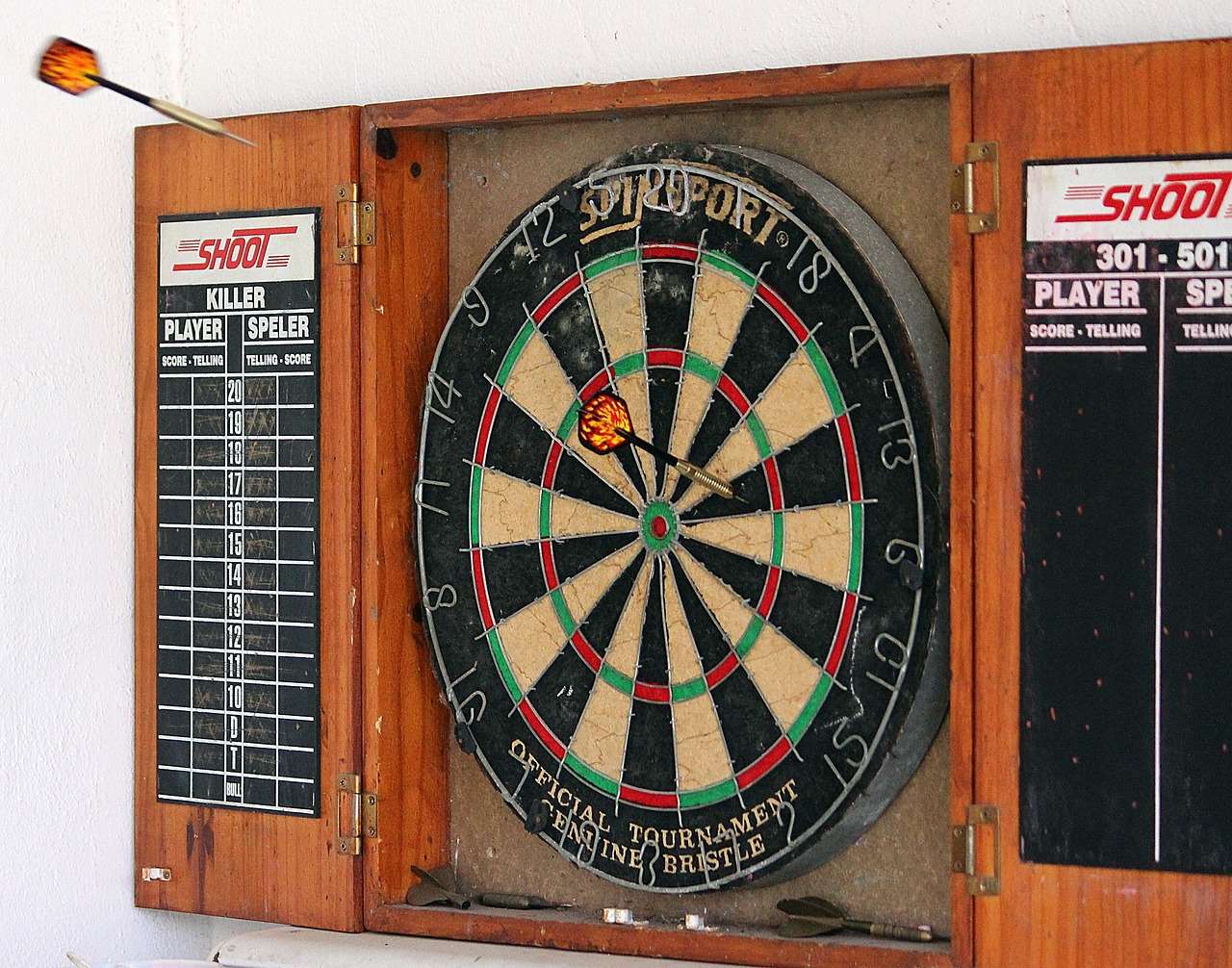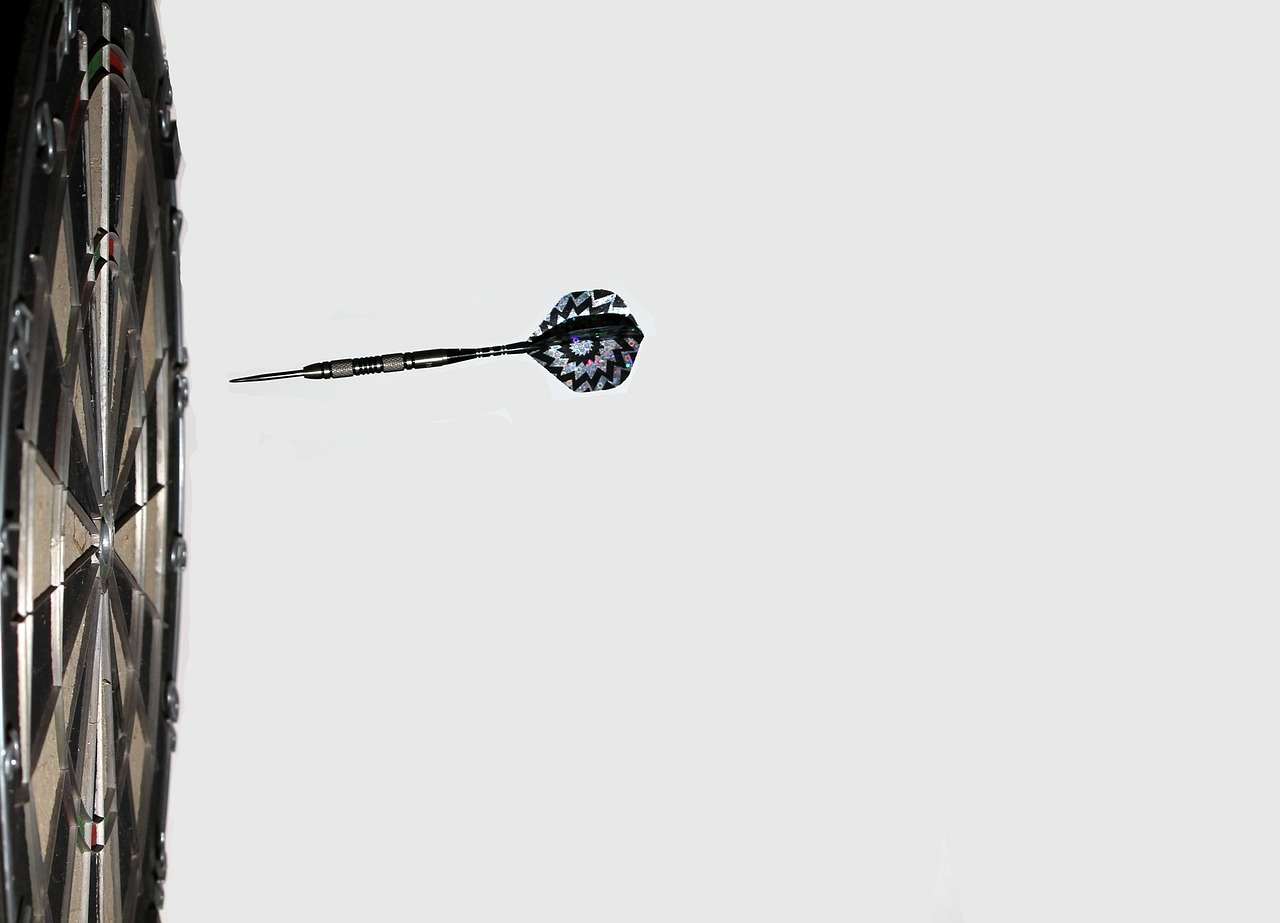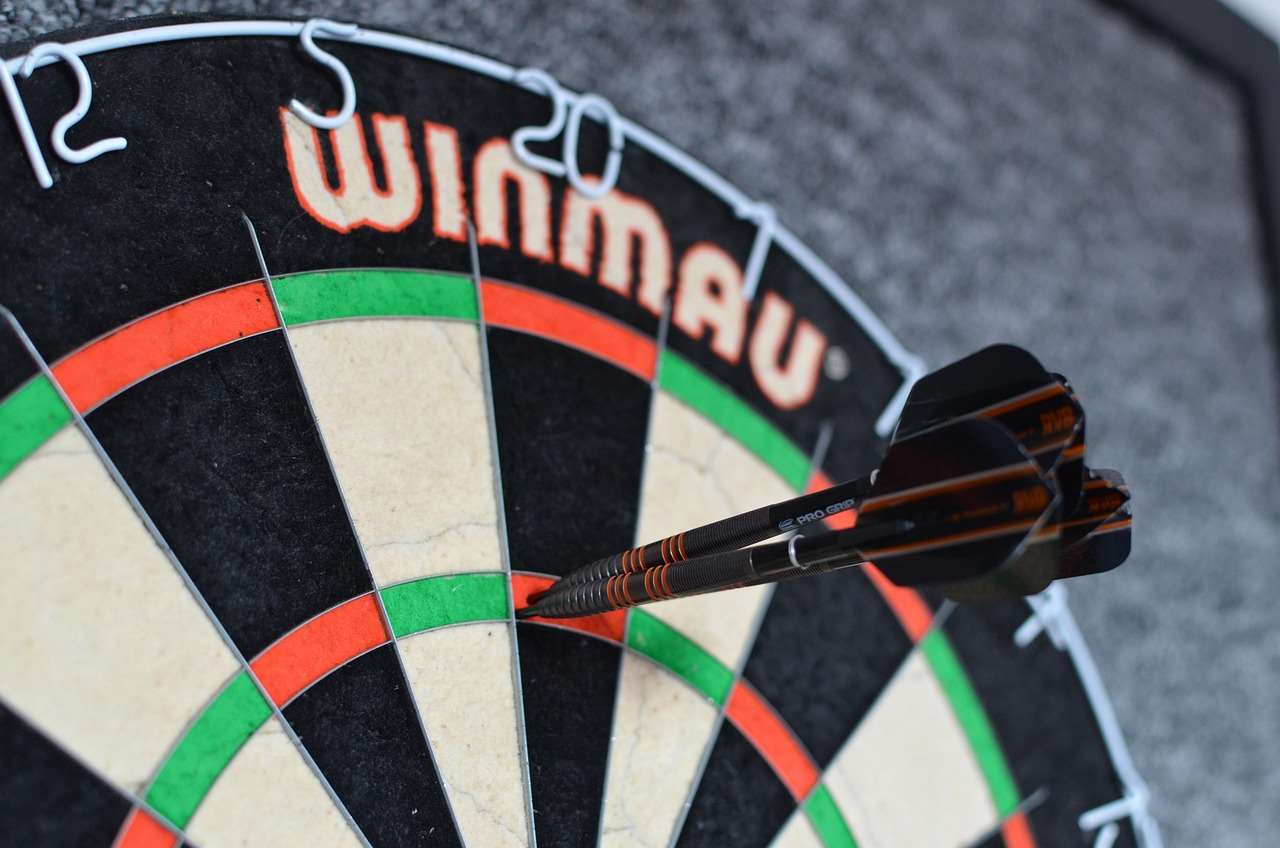Sharpening darts at home is surprisingly straightforward, focusing primarily on maintaining the points and flights. This article will guide you through the process, covering everything from basic sharpening techniques to advanced flight care, ensuring your darts remain in peak condition for optimal performance.
⚠️ Still Using Pen & Paper (or a Chalkboard)?! ⚠️
Step into the future! The Dart Counter App handles all the scoring, suggests checkouts, and tracks your stats automatically. It's easier than you think!
Try the Smart Dart Counter App FREE!Ready for an upgrade? Click above!
Before diving into the specifics of sharpening darts at home, let’s address a common misconception. Unlike knives or other bladed instruments, you don’t actually sharpen the points of your darts in the traditional sense. Instead, maintaining their performance involves removing burrs, straightening bent points, and replacing worn-out flights and shafts.
The focus is on preserving the initial sharpness and ensuring the dart’s overall integrity. This approach helps improve your game by enhancing accuracy and consistency. Learning how to properly maintain your darts will drastically extend their lifespan, saving you money in the long run. This article delves into practical techniques, providing actionable steps to keep your darts in top shape.
Sharpening Darts at Home: A Step-by-Step Guide

The process of sharpening darts at home is less about sharpening and more about maintenance and repair. Here’s a breakdown of the key areas to address:
Inspecting Your Darts
Begin by thoroughly inspecting each dart. Look for bent points, damaged flights, or loose shafts. Bent points can significantly impact accuracy. Addressing these issues early will prevent further damage and improve your game. A simple visual inspection is the first step towards effective dart maintenance. For a more comprehensive approach, check out our Dart Equipment Troubleshooting Information page.
Straightening Bent Points
Gently straighten bent points using pliers or a specialized dart point straightener. Avoid applying excessive force, as this could damage the point or the entire dart. Remember, subtle adjustments are usually sufficient. If you’re concerned about damaging your darts, consult our dart equipment troubleshooting program online for additional guidance.
Removing Burrs
Sometimes, small burrs or imperfections can develop on the dart points. These can affect the dart’s ability to penetrate the dartboard correctly. You can carefully remove these using a fine-grit sharpening stone or even a very fine piece of sandpaper. Be incredibly gentle, as excessive sanding can damage the point. Remember, we’re aiming for precision, not aggressive reshaping.
Replacing Damaged Flights
Damaged or worn flights significantly impact your dart’s aerodynamics, leading to inconsistent throws. Replace any damaged flights promptly. This is a simple process involving removing the old flights and replacing them with new ones. There are tons of options available to customize your darts and flights to match your preferred playing style. We provide valuable information on extending flight lifespan to help you save money and waste less.
Maintaining Your Dartboard

While not directly related to sharpening darts at home, the condition of your dartboard greatly impacts your game and your darts’ lifespan. A well-maintained dartboard ensures your darts are hitting a consistent and firm surface, preventing premature damage to the points. Regular cleaning and proper care will extend the life of your dartboard considerably.
Cleaning Your Dartboard
Regularly clean your dartboard using a soft brush or cloth. This helps remove dust and debris that can accumulate over time, impacting the dart’s grip and accuracy. For sisal dartboards, refer to our guide on dartboard care for sisal.
Addressing Dartboard Damage
Over time, your dartboard will inevitably sustain damage, such as spider marks or worn-out wires. Addressing these issues promptly can prevent further damage and extend the lifespan of your board. Consult our tutorials on repairing dartboard spider marks and replacing stapled dartboard wires for helpful guidance.
Advanced Dart Maintenance Techniques
For those seeking to elevate their dart maintenance game, several additional techniques can improve your darts’ performance and longevity. These techniques often focus on optimizing your dart’s flight and ensuring your darts hit the target with maximum precision.
Flight Alignment
Ensure your flights are correctly aligned. Misaligned flights can create drag and negatively affect your throws. Proper flight alignment is crucial for consistent and accurate throws. Our article on troubleshooting dart flights provides detailed information.
Shaft Integrity
Inspect your shafts regularly for damage or looseness. Loose shafts can lead to points falling off during throws. If you notice any problems, replace the shafts immediately. This simple action can significantly enhance your game’s consistency.
Point Replacement
While you’re not technically sharpening the points, replacing worn-out points is a crucial aspect of maintaining your darts. Worn points lack grip and accuracy. To learn more about the specifics of replacing dart points, consult our dart repointing data page for detailed instruction.

Understanding Dart Materials and Their Impact
The materials used in your darts significantly impact their performance and maintenance requirements. Different materials require different care strategies. Understanding the composition of your darts can be invaluable.
Steel-Tip Darts
Steel-tip darts are generally more durable and require less frequent point replacement than soft-tip darts, but they still need regular cleaning and inspection for bent points. Regularly inspecting for bent points and replacing damaged flights will go a long way in increasing the longevity and performance of your steel-tip darts. This also involves understanding how to appropriately address different issues, which is covered in our Darts Equipment Maintenance Customization page.
Soft-Tip Darts
Soft-tip darts require a slightly different approach. The tips are replaceable, and their life can be extended by avoiding throws that result in excessive bending or twisting of the tips. Remember, consistent maintenance is key for both steel-tip and soft-tip darts. This helps in extending the lifespan of your darts and ensures that they’re delivering maximum performance each time you throw.
Setting Up Your Dartboard and Throwing Area

The environment you play darts in directly affects the outcome of your game. Consistent and precise throwing relies on having a properly set up dartboard and surrounding area. Improper setup can inadvertently damage your darts and result in inconsistent gameplay.
Proper Dartboard Placement
Ensure your dartboard is mounted securely at the correct height and distance. This helps prevent unnecessary wear and tear on your darts. Improper placement can negatively impact your throws.
Adequate Lighting
Sufficient lighting is essential for clear vision, improving your accuracy and reducing the risk of damaging your dartboard by mis-throwing.
Safe Throwing Area
Ensure there’s a sufficient safe throwing area around the dartboard to avoid accidental injuries or damage to surrounding objects.
Tools and Materials for Sharpening Darts at Home
The tools and materials needed for sharpening darts at home are quite minimal and readily accessible. Having the right tools makes the process more efficient and less likely to damage your darts.
- Fine-grit sharpening stone (optional)
- Fine sandpaper (optional)
- Pliers (for straightening bent points)
- Replacement flights and shafts
- Soft cloth or brush (for cleaning)

Conclusion: Keep Your Darts Sharp and Your Game Strong
Sharpening darts at home is more about preventative maintenance than aggressive sharpening. By regularly inspecting your darts, replacing worn components, and maintaining your dartboard, you can significantly extend their lifespan and consistently improve your game. Remember to prioritize proper technique and use the appropriate tools to avoid damaging your darts. By following these steps, you can keep your darts in top shape and continue enjoying the precision and satisfaction of a well-played game. With the right approach, you’ll be able to keep your darts performing at their peak. Don’t forget to check out our guides on dartboard wire and number best practices and dartboard number replacement tutorial for more helpful tips!
Hi, I’m Dieter, and I created Dartcounter (Dartcounterapp.com). My motivation wasn’t being a darts expert – quite the opposite! When I first started playing, I loved the game but found keeping accurate scores and tracking stats difficult and distracting.
I figured I couldn’t be the only one struggling with this. So, I decided to build a solution: an easy-to-use application that everyone, no matter their experience level, could use to manage scoring effortlessly.
My goal for Dartcounter was simple: let the app handle the numbers – the scoring, the averages, the stats, even checkout suggestions – so players could focus purely on their throw and enjoying the game. It began as a way to solve my own beginner’s problem, and I’m thrilled it has grown into a helpful tool for the wider darts community.